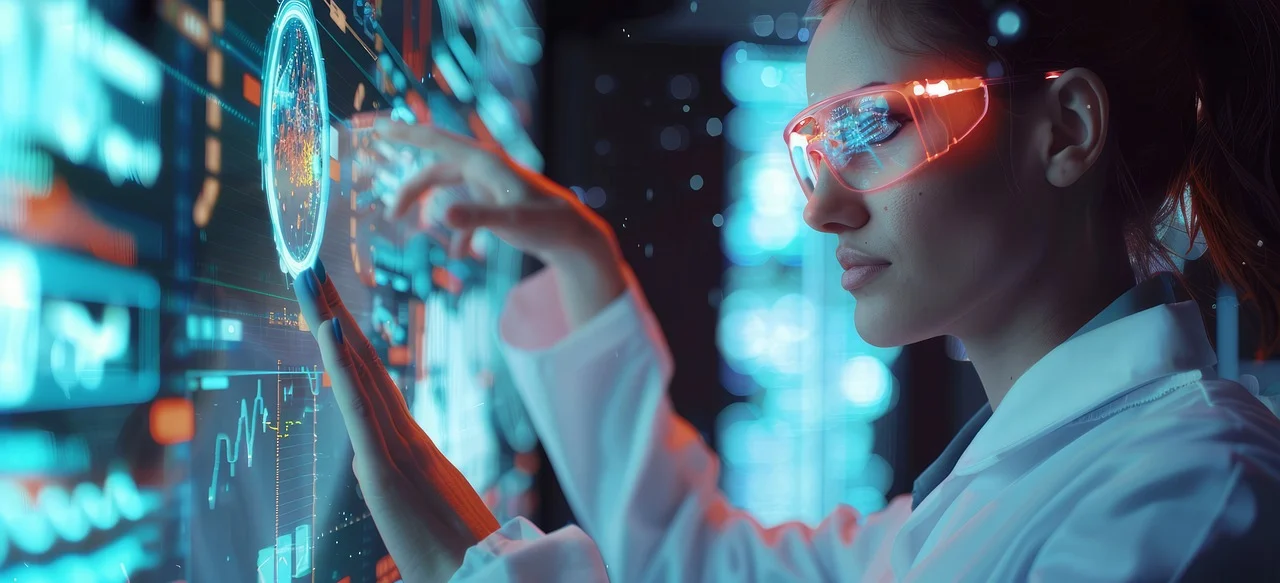In the fast-paced and ever-evolving healthcare industry, we’re seeing some pretty mind-blowing ways technology is sneaking into our doctor’s offices and hospitals. It’s not just about making things faster or easier; it’s about changing lives, saving them, and sometimes, even adding a bit of sci-fi flair to our medical experiences. Let’s dive into some of the coolest and most unexpected ways tech is revolutionizing medicine.
Smart Tattoos: The Next Frontier in Patient Monitoring
Picture this: your body ink not only looks cool but also keeps an eye on your health. Researchers are on the brink of making this a reality with bio-sensitive tattoos. These aren’t your ordinary tattoos. They have special ink that changes color based on your body’s chemistry. For example, if you have diabetes, the tattoo could shift hues with your glucose levels. This kind of tech could one day make blood tests less frequent and let people monitor their health in real-time, all the time. It’s like having a health dashboard right on your skin!
Virtual Reality (VR) for Chronic Pain Management
Millions of people live with chronic pain, and often, the pills doctors prescribe can lead to all sorts of other problems. But what if we could use virtual reality to tackle pain? Well, it’s happening. VR isn’t just for gamers anymore; it’s entering the medical field as a tool to help people manage pain. By putting on a VR headset, patients can escape to another world where they can learn how to handle their pain through various exercises and distractions. This method uses the power of the brain to control what the body feels, and it’s as cool as it sounds.
The Role of Artificial Intelligence in Pathology
AI in pathology is turning the tedious task of disease diagnosis on its head. Imagine a computer that can scan through thousands of medical images and spot diseases like cancer faster and more accurately than a human ever could. This isn’t just about speed; it’s about seeing the tiny details that even the most trained eyes might miss. AI is helping pathologists find patterns and clues in diseases, paving the way for quicker and more personalized treatment plans. It’s like having a super smart assistant that never gets tired!
Drones for Rapid Medical Supply Delivery
Drones are flying out of the hobbyist’s garage and into the medical field. These aren’t just any drones; they’re lifesavers. In emergencies, every second counts, and drones can deliver blood, medicine, or even organs much faster than an ambulance stuck in traffic. They are especially game-changers for rural or hard-to-reach areas, making sure that help arrives on time, every time. It’s like having a medical delivery hero that flies above all the hurdles.
The Virtual Dental Assistant
The dental world is also getting a tech makeover with something called the “virtual dental assistant.” You can now outsource tasks and grow your business by hiring a virtual dental assistant. From checking patient symptoms to managing schedules, this assistant makes dental practices more efficient. It means less waiting for you, and more focus on your smile care from your dentist. It’s a win-win where the paperwork gets done faster, and your oral health gets the attention it deserves.
Blockchain for Patient Data Security
You’ve probably heard of blockchain in the context of digital currencies, but it’s also making a splash in healthcare. By spreading patient data across a secure network, blockchain technology ensures that medical records are both safe and easy to share among doctors. This means better security from hackers and a smoother flow of information. So, if you’re seeing multiple specialists, they all can get your complete medical history without the risk of data breaches. It’s like having a Fort Knox for your health records.
Telepresence Robots in Intensive Care
Now, let’s get a bit futuristic with robots in hospitals. Not just any robots, but telepresence robots that doctors can control from miles away. These robots can check on patients, carry out routine tasks, and provide updates to specialists who can’t be there in person. It’s perfect for areas that don’t have enough medical experts on hand. With these robots, high-quality care can reach anywhere, eliminating the distance barrier in healthcare. It’s like having a doctor roll up right beside your bed, even if they’re actually across the country.
Genomic Tailoring for Personalized Medicine
Last on our list, but certainly not least, is how genomics is changing the way we think about medicine. By analyzing your genes, doctors can predict which diseases you’re prone to and which medicines will work best for you. This means treatments are designed just for you, right down to the molecular level. It reduces the guesswork and unnecessary side effects. Imagine treatments that are as unique as you are — that’s the promise of genomic medicine.
Augmented Reality for Surgical Precision
Step into the operating room where surgeons are using augmented reality (AR) to perform surgeries with a precision that sounds like something out of a sci-fi movie. AR overlays digital information onto the real world, which means surgeons can see 3D models of a patient’s anatomy right during an operation. This tech allows them to navigate complex procedures with more confidence and less guesswork. For patients, this means safer surgeries and quicker recovery times. It’s like having a GPS for the human body, guiding surgeons along the safest and most efficient routes.
Wearable Fitness Trackers as Health Monitors
Think of that fitness band on your wrist as more than just a step counter. Today’s wearables are evolving into comprehensive health monitors. They’re tracking everything from heart rate to sleep patterns, and they’re getting smarter at detecting health issues early. Some can even send an alert to your doctor if something seems off. It’s like having a personal health guardian on your wrist, watching over you 24/7. This means you can catch potential health problems before they become serious, making these gadgets a key player in preventive healthcare.
Conclusion
From smart tattoos that check your health to drones delivering medical supplies, technology is making healthcare more innovative, efficient, and personalized than ever. These advancements are more than just cool gadgets; they’re new ways to tackle old problems, making sure that everyone, everywhere, gets the best care possible. As we continue to embrace these technologies, the future of medicine looks not just promising but pretty exciting, too.






